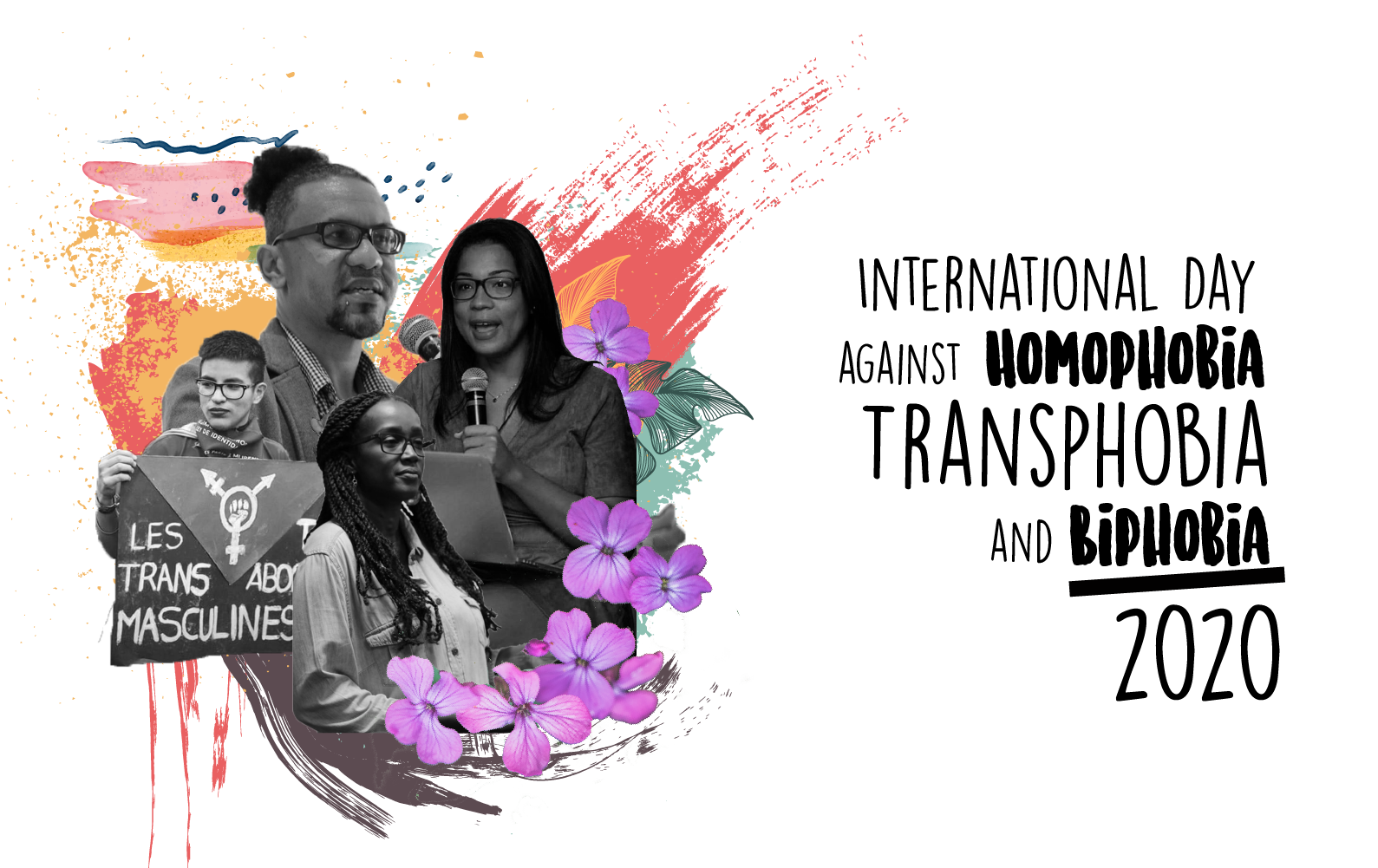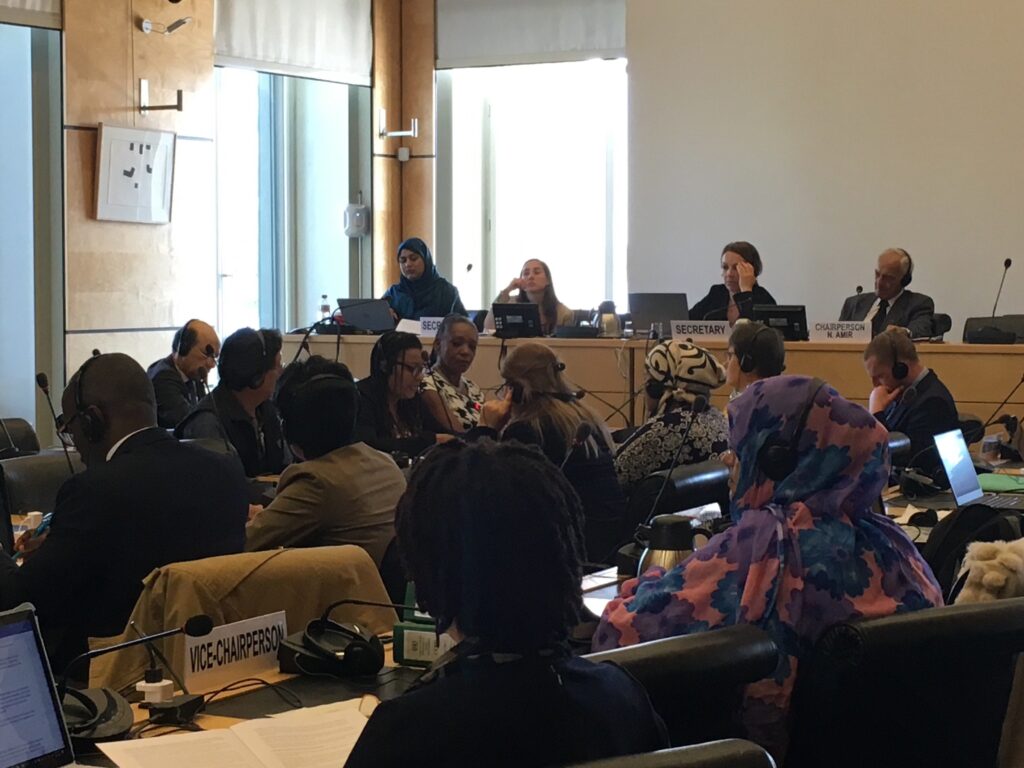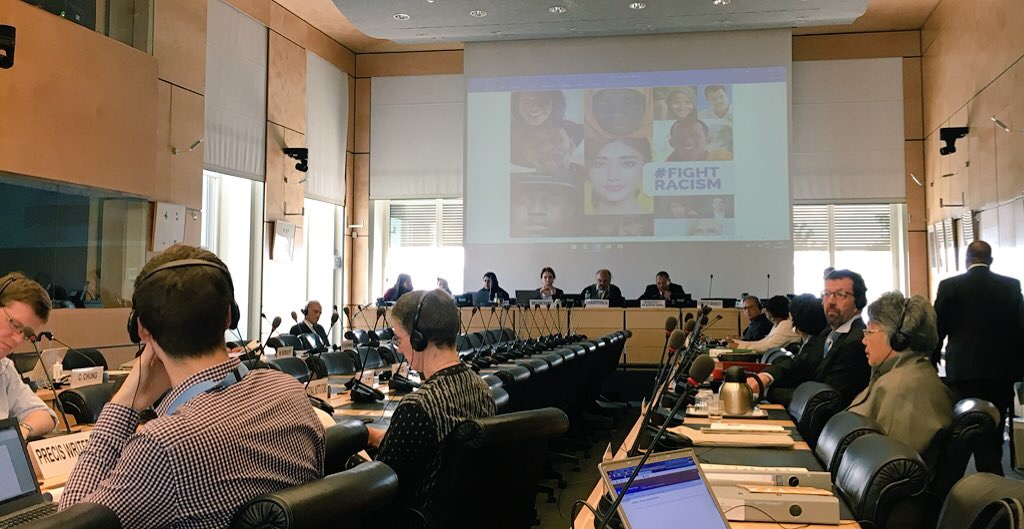No more silence: Reclaiming our voice on the International Day against Homophobia, Transphobia and Biphobia
Washington D.C., May 17. This May 17 marks 30 years since the World Health Organization (WHO) declassified homosexuality as a mental disorder, a global milestone that accelerated progress in the […]

Washington D.C., May 17. This May 17 marks 30 years since the World Health Organization (WHO) declassified homosexuality as a mental disorder, a global milestone that accelerated progress in the recognition of the human rights of lesbian, gay, bisexual, transgender and intersex people (LGBTI). On this date, we commemorate the International Day Against Homophobia, Transphobia and Biphobia, a day to draw attention to the violence and discrimination that LGBTI people still suffer in our societies.
This year the promoted theme is “breaking the silence,” inviting people from the LGBTI community to no longer be afraid to express their sexual orientation or gender identity to their family or to others in their social circles. The commemoration this year is also framed within a global health crisis generated by COVID-19, which has intensified structural discrimination and evidenced the prejudices that persist in our society.
Historically, the LGBTI population has been stigmatized by a heteronormative society that has not allowed their participation in public spaces. The commemoration of this day is vital to bring to light all the acts of discrimination that endure in our societies and to denounce violence against people with diverse sexual orientations and gender identities.

“To break the silence is to give a voice to those who have had theirs silenced by stigma, discrimination, social exclusion, and the constant violations of rights that remain in impunity because of States’ lack of political will. To break the silence is to shout with evidence a truth that our States, in most cases, do not want to show or do not take into account. Breaking the silence is saying we are, we exist, and we have rights.”
The fight for equality and justice is a daily job for many people. It is not just about commemorating this day, but rather it is a fight that persists throughout every day of the year.

Santiago Balvín Gutiérrez, explains to us the importance of being able to raise his voice as a trans person: “Breaking the silence has enabled my body to speak, my insides to speak, and my experiences speak. They do not remain silent because my life, and the lives of my trans sisters and brothers, do not deserve to be silence because they are different. Breaking the silence means to me that every feeling of oppression is also broken and seeks freedom for everyone, the same freedom that I began to feel when I chose to be myself.”
In recent weeks, we have witnessed latent and structural discrimination in the implementation of public policies by States and their institutions in response to COVID-19 that have exacerbated inequalities. The absence of public policies with a gender focus and the lack of training and awareness of public authorities has reproduced patterns of violence and acts of discrimination against LGBTI people. In many cases, the social distancing policies adopted by States did not consider the poverty, marginalization, and violence that people with diverse sexual orientations and gender identity face on a daily basis. By failing to do so, they exposed this group to harm.
The enactment of “pico y género” in different countries caused serious human rights violations, especially for the trans population. Their vulnerability is on the rise, as they face not only abuse of power by law enforcement, but also unemployment and domestic violence. Many have had to post pone name change trials, postponing a necessary step to protecting their gender identity, and others lack access to medical centers to receive hormone treatment or other medical necessities due to the pandemic.

Today more than ever, it is necessary to take differentiated and specific actions for the LGBTI population, with forceful strategies to stop cases of abuse and systematic human rights violations of all diverse people. Franklin Quiñones, from the Fundación Arcoíris de Tumaco, believes that breaking the silence implies “making visible and / or denouncing any act of discrimination and / or violence against people with diverse sexual orientations such as the LGBTI population,” which can be achieved “by supporting us in the use of all existing legal human rights protection and communication tools.”

Likewise, Sandra Arizabaleta, from the organization Somos Identidad in Cali in Colombia, explains that: “it is urgent to break the silence so that we use all community and legal mechanisms in order to enable the free development of the lives of LGBTI people. You can (and should) love beyond a role assignment and genitality.”
The violation of the fundamental rights of LGBTI people is heightened when the effects are combined with other scenarios and realities of the same or worse condition.
The violation of the fundamental rights of LGBTI people is heightened when the effects are combined with other scenarios and realities of the same or worse condition.
LGBTI people who are also members of other marginalized populations experience a different form of discrimination and rights violations. Examples of this are people of African descent with diverse gender identities and expressions who live with extreme violence, without support from the State, in poverty, and without access to basic health services, education, and employment. “Regions such as the Colombian Pacific, where a greater number of Afro-descendants live, are far from being protected with measures that use an intersectional approach,” adds Sandra of Somos Identidad.
The health crisis caused by COVID-19 has shown that despite advances in human rights for the LGBTI population, there are still great gaps and challenges that can only be overcome with the political action of States to guarantee human rights with a differential focus. “In times of crisis, it becomes clear who are leaders and who are not, and bad leadership will tend to exacerbate difficulties for the most vulnerable populations,” says Carlos Quesada, Executive Director of Race and Equality.
“For thousands of people around the world, breaking the silence often means remaining silent. Shouts occur when small gestures can go unnoticed, simple looks demand light or even a weak voice hesitates to echo in certain spaces. To be heard, sometimes we need to be vigilant because there is no point in breaking the silence if there is no one to listen to us, if there are no spaces with sharp ears to capture sounds, but rather gestures, looks. The power to break the silence is only effective when there is the power to listen. Otherwise, we will spend a lifetime wanting to have ‘meaning’,” explains Mariah Rafaela, Research Coordinator at the Conexão G Group of LGBT Citizenship in Favelas in Brazil.
Race and Equality, along with the LGBTI civil society organizations with which we work, urges Latin American States to:
– Take measures to prevent violence, with a differentiated perspective that considers the historical discrimination suffered by Afro-LGBI and trans people.
– Open a dialogue for monitoring the context of violence based on sexual orientation and gender identity together with civil society.
– Provide trainings to State officials on these issues.
– Include LGBTI people in emergency health planning. LGBTI representatives and voices need to be included, as well as sex workers, in all social protection plans, especially in access to emergency income.
Finally, it is an obligation of States to join us in breaking the silence against discrimination, violence, and indifference through affirmative actions that guarantee the recognition of the rights of LGBTI people.

